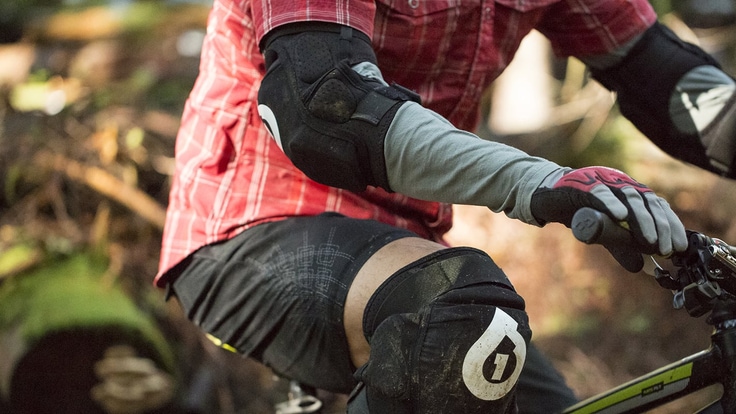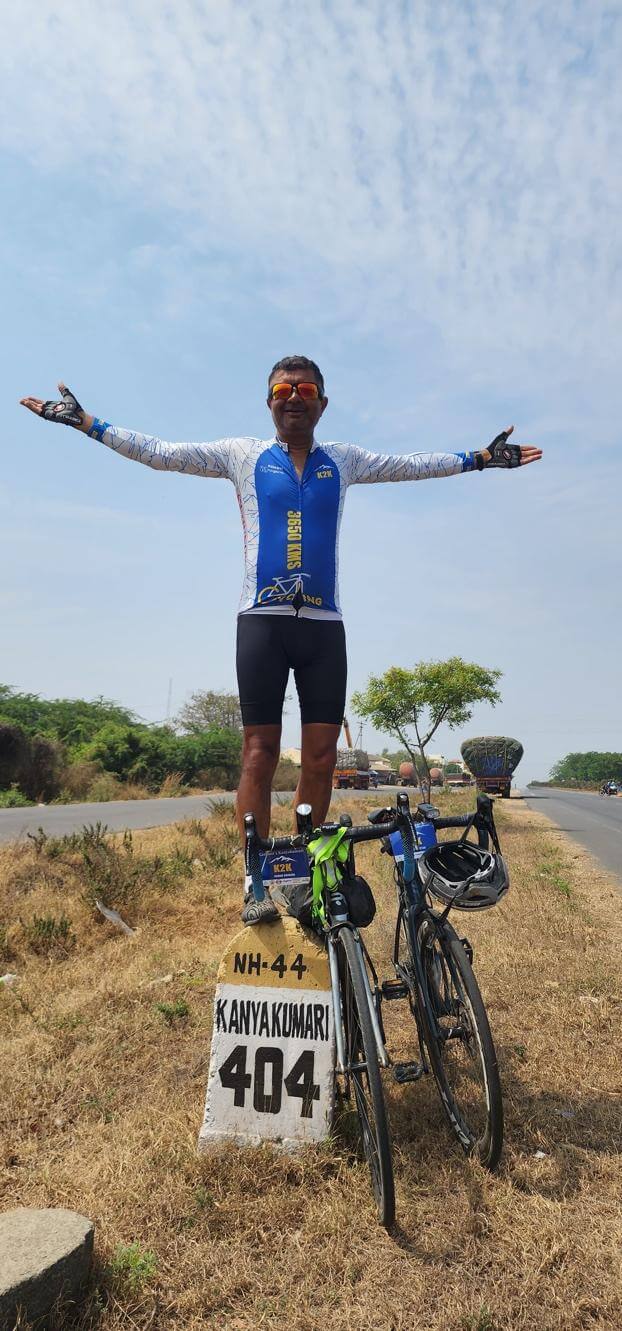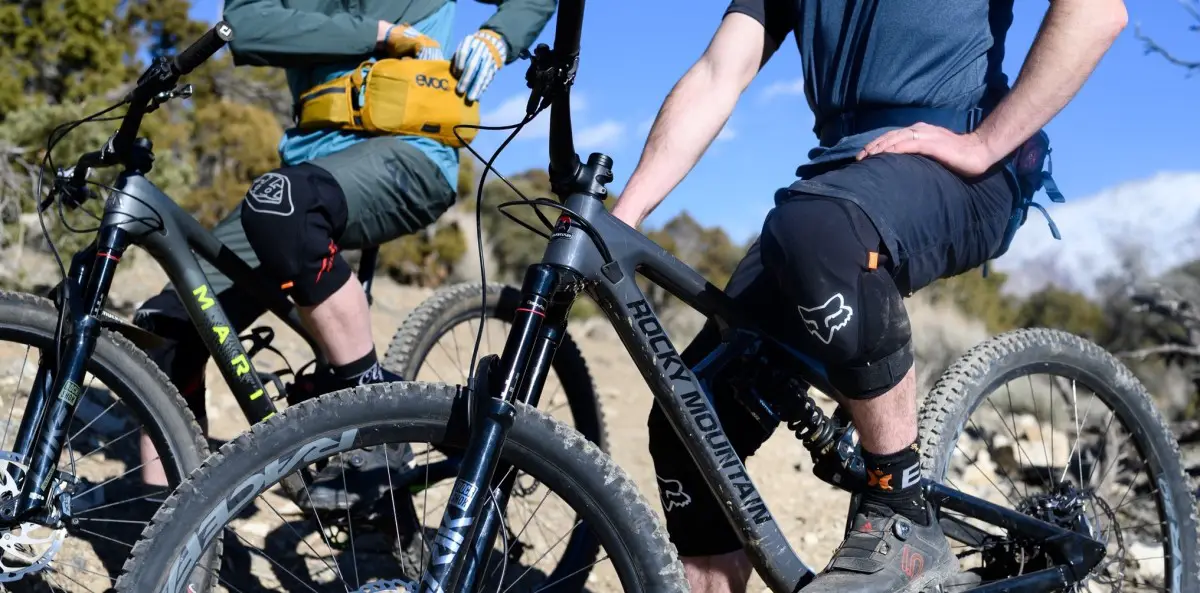Mountain bike padding provides crucial protection and comfort for riders. It cushions impacts and reduces the risk of injury during falls.
Selecting the right mountain bike padding is essential for both amateur and professional riders aiming to tackle rough terrains safely. Quality padding can be found in helmets, gloves, knee and elbow pads, and shorts, where cushioning material like foam absorbs shocks from bumps and falls.
For a mountain biker, this gear not only enhances the riding experience by preventing bruises and scrapes, but it also boosts confidence, knowing that they have an additional layer of safety. Novice riders and seasoned experts alike should ensure their padding fits correctly and meets safety standards to fully enjoy the exhilarating sport of mountain biking. Proper mountain bike padding is an investment in your safety and your ability to perform at your best on the trails.
Introduction To Mountain Biking Gear
Mountain biking is not just about the ride. It’s a thrilling experience that requires the right gear. Proper equipment ensures safety and enhances performance. This introduction will navigate through the essentials, with a focus on the importance of mountain bike padding.
Understanding The Importance Of Mountain Bike Padding
Mountain biking tests your limits. Rough terrain and unexpected jolts can be unforgiving. That’s why padding is crucial. It absorbs shocks and guards against injuries. Let’s explore padding’s role in a rider’s gear.
An Overview Of Padding Equipment For Riders
Safety comes first. Padding covers various body parts to prevent harm. Check out this list of essential padding equipment:
- Helmets: Protect the head, the most important safety priority.
- Gloves: Offer hand protection and better grip control.
- Knee & Elbow Pads: Shield joints during falls.
Crucial Padding Equipment For Every Rider
Crucial Padding Equipment for Every Rider ensures safety and comfort during rides. Diverse terrains and unexpected falls make the right gear essential. Padding equipment protects vital areas of your body. Explore must-have gear for mountain biking adventures.
Helmets: The First Line Of Defense
Helmets safeguard your head, the most critical area to protect. They range from lightweight models to full-face options for downhill rides. Features to consider:
- Adjustable straps for a snug fit
- Ample ventilation to keep cool
- Durable materials to absorb impacts
Choosing The Right Mountain Bike Gloves
Gloves enhance grip and shield hands from scratches. Look for:
- Padded palms to cushion falls
- Breathable fabric to prevent sweating
- Finger mobility for easy bike handling
Protective Eyewear: Seeing Clearly And Safely
Protective eyewear prevents dust and debris from impairing vision. Ensure lenses are:
- Impact-resistant to protect eyes
- UV protected for sun safety
- Anti-fog for a clear view
Comfortable And Protective Shorts For Long Rides
Mountain bike shorts offer comfort and protection. They should be:
- Padded to reduce saddle discomfort
- Durable to withstand falls and abrasions
- Flexible for ease of movement
Elbow And Knee Pads: Flexible Protection For Joints
Elbow and knee pads guard against cuts and bruises. Key features include:
- Shock absorption for impacts
- Adjustable straps for a secure fit
- Comfortable lining for long-term wear
The Role Of Body Armor In Mountain Biking
Body armor offers extra security for spine and chest. Ideal for aggressive riding. Select body armor that provides:
- Full coverage for critical areas
- Lightweight design for mobility
- Vented plates for airflow
Selecting And Maintaining Your Mountain Bike Padding
Maintaining the right padding is crucial for any mountain biker. It means comfort and safety on rough trails. How do you pick the right gear, and once you have it, how do you keep it in top condition? These tips will guide you through.
Factors To Consider When Buying Mountain Bike Padding
- Material: Seek breathable, durable fabrics.
- Protection: Ensure padding covers crucial areas.
- Comfort: Hunt for flexible, non-restrictive padding.
- Ventilation: Adequate airflow reduces sweat.
- Weight: Light materials offer ease in movement.
Sizing And Fit: Key To Comfort And Protection
A precise fit ensures maximum protection. Loose padding can shift, exposing you to injuries. Measure your body using a tape measure. Match these to manufacturer size charts.
Caring For Your Gear: Cleaning And Storage Tips
- Wash Regularly: Follow label instructions.
- Dry Thoroughly: Air-dry away from direct sunlight.
- Correct Storage: Keep in a dry, cool place.
When To Replace: The Lifespan Of Your Mountain Bike Padding
Pads may wear out over time. Inspect your gear after every ride. Look for tears, flat spots, or comfort issues. Replace padding if you notice these flaws. Remember, safety first!
Advanced Padding Technologies And Materials
Mountain biking demands not just skill but also protective gear. Advanced Padding Technologies and Materials significantly enhance a rider’s comfort and safety. Let’s delve into how modern innovations in padding elevate the mountain biking experience with unmatched shock absorption, flexibility, and movement.
Innovations In Padding Material For Better Shock Absorption
Recent breakthroughs in padding materials redefine riding comfort.
- Viscoelastic foam adjusts to body contours.
- Aerogel-infused padding resists compression.
- Memory foam layers distribute impact evenly.
This high-tech blend ensures every jolt and bump on the trail gets absorbed, safeguarding the rider against bruises and strain.
Design Advancements For Improved Flexibility And Movement
Mountain bike padding now has ground-breaking design features.
- Body-mapped padding that enhances articulation.
- Ergonomic cuts and seams maximize range of motion.
- Stretchable fabrics with strategic padding placements.
Such design ingenuity promises riders full flexibility when navigating challenging terrain.
Comparing Traditional And Modern Mountain Bike Padding
| Aspect | Traditional Padding | Modern Padding |
|---|---|---|
| Material | Foam, Rubber | Viscoelastic Foam, Aerogel |
| Shock Absorption | Adequate | Exceptional |
| Flexibility | Limited | High |
| Weight | Heavier | Lighter |
| Durability | Varies | Long-lasting |
Charts like the one above illustrate distinct differences between past and present padding solutions. Modern materials not only outperform but also outlast their predecessors.
Riding With Comfort: Tips Beyond Padding
Mountain bikers know that padding is crucial for a comfortable ride. But comfort on the trails doesn’t end there. For a real game-changer, consider the entire riding experience. Below are advanced tips every rider should know for a smoother journey beyond the usual padding.
Proper Riding Technique To Minimize Discomfort
Master your stance and bike handling to reduce strain. Keep a light grip on the handlebars. Focus on weight distribution to ease the load on your body. Ride in a neutral position, standing slightly when needed, to enhance control and absorb shocks effectively.
- Relax your shoulders and elbows.
- Keep your knees slightly bent.
- Look ahead, not directly at your front wheel.
Staying Hydrated And Energized On The Trail
Energy loss or dehydration can cause discomfort. Bring enough water and replenish fluids. Energy bars or snacks are perfect for longer trails. Keep them within easy reach.
| Trail Duration | Water | Snacks |
|---|---|---|
| 1-2 hours | 2 liters | Nuts or fruit |
| 2+ hours | 3+ liters | Energy bars or sandwiches |
Post-ride Recovery: Stretching And Foam Rolling
After a ride, care for your muscles. Stretch to aid recovery and use a foam roller to work out knots. Focus on your back, legs, and arms. This reduces soreness, prepares you for your next ride, and enhances comfort for future adventures.
- Start with a light cool-down ride.
- Perform full-body stretches.
- Use a foam roller for 10-15 minutes.

Credit: www.rei.com
Conclusion: The Synergy Of Comfort And Safety
The right blend of comfort and safety in mountain bike padding is essential. It ensures a ride that is both enjoyable and secure. With the proper gear, bikers can tackle rugged trails without hesitation. Let’s explore how to achieve this synergy.
Balancing Comfort And Protection In Padding Choices
The best padding solutions offer a dual benefit: they provide safety and maintain comfort levels. Riders must consider the terrain and their riding style when selecting paddings. Bikers can choose from a wide range of materials and designs. These choices help defend against impacts while preventing discomfort during long rides.
Personalizing Your Padding Setup For The Ultimate Ride
- Measure your body accurately to find pads that fit well.
- Consider pads that match your riding conditions, such as weather-resistant options.
- Look for adjustable straps for a snug, yet comfy fit.
Custom fitting ensures your padding feels like a second skin. This personal touch maximizes the riding experience while keeping safety a priority.
Embracing The Journey: Safe And Comfortable Mountain Biking
Safe and comfortable mountain biking is all about the journey. Equip yourself with pads that suit your adventures. Durable, well-fitting, and comfy gear makes every trip memorable. Trust in your equipment and savor every moment on the trails.

Credit: www.bicycling.com
Frequently Asked Questions For Mountain Bike Padding
What Pads To Wear When Mountain Biking?
For mountain biking, wear knee pads, elbow pads, and a full-face helmet for optimal protection on rough terrain. Consider padded shorts for extra comfort on long rides.
Should You Wear Pads Mountain Biking?
Yes, wearing pads while mountain biking is recommended for protection against falls and collisions. They safeguard knees and elbows from injuries.
How Do I Choose Mountain Bike Knee Pads?
Choose mountain bike knee pads based on fit, comfort, protection level, breathability, and durability. Ensure they match your riding style and offer snug, non-restrictive movement. Opt for pads with good user reviews and reliable strap systems for secure placement. Consider lightweight materials for longer rides.
What Is The Difference Between A Knee Guard And A Knee Pad?
A knee guard typically offers support to the knee joint, while a knee pad provides cushioning to protect against impact and injuries.
Conclusion
To wrap up, the right mountain bike padding is essential for your ride. It safeguards your body and boosts confidence on rugged trails. Remember, comfort and safety go hand-in-hand – and quality padding delivers both. Gear up properly, and the mountains become your playground with every pedal.

Sanjeev Rattan, a 50-year-old cyclist from Delhi, started cycling in 2016 to reduce carbon footprint and promote sustainable transportation. He has completed multiple long-distance rides, including G2G, B2B, and Golden Triangle rides, and has earned 7 Super Randonneur titles from Audax Club Parisien.
In his professional life, Sanjeev works in data security and digital solutions for various sectors, including defense, law enforcement, smart cities, utilities, telecom, and IoT networks.


Leave a Reply